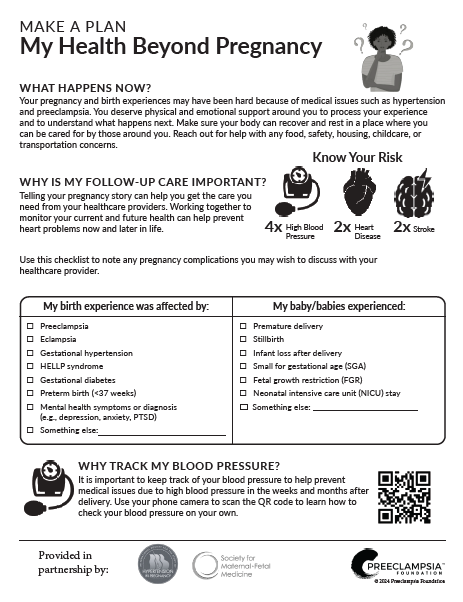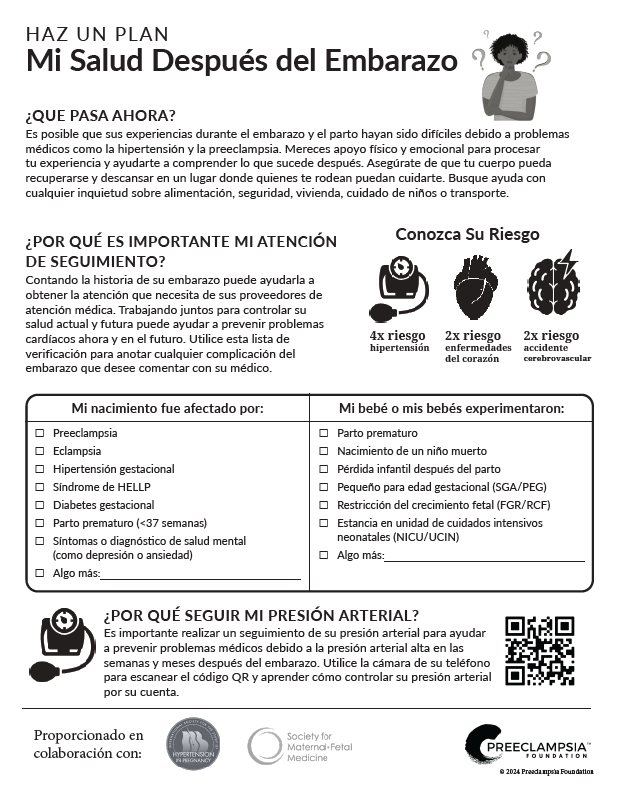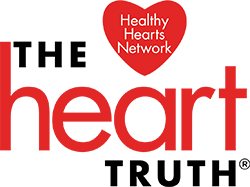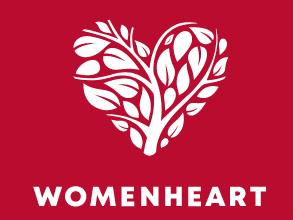
New high blood pressure guidelines emphasize role of pregnancy health, prevention, and early treatment to reduce cardiovascular risk
Preventing and managing high blood pressure with healthy lifestyle behaviors are at the center of updated clinical guidelines published this week in the American Heart Association (AHA) peer-reviewed journals Circulation and Hypertension, and in the American College of Cardiologists (ACC) journal JACC. Heart disease and related conditions remain the leading cause of death for adults in the United States, with high blood pressure affecting nearly half of all adults in the population, and these updated guidelines specifically call out the association between preeclampsia and long-term heart disease risk.
The “2025 AHA / ACC / AANP / AAPA / ABC / ACCP / ACPM / AGS / AMA / ASPC / NMA / PCNA / SGIM Guideline for the Prevention, Detection, Evaluation, and Management of High Blood Pressure in Adults” replaces the 2017 guideline, and includes new or updated recommendations for blood pressure management based on the latest scientific evidence to achieve the best health outcomes for patients. (Top 10 Things to Know About the New AHA/ACC High Blood Pressure Guidelines, source: heart.org)
“We appreciate the guidelines’ inclusion of pregnancy health as a risk factor for long-term cardiovascular disease, as well as the focus on early prevention for young women who may be at increased risk because of hypertensive disorders of pregnancy,” said Preeclampsia Foundation Chief Executive Officer Eleni Z. Tsigas. Over its 25 year history, the Preeclampsia Foundation has partnered with the American Heart Association and others on important advocacy efforts to better connect pregnancy heart health and later life impacts among healthcare provider audiences.
One of the most important public awareness messages that the updated guidelines emphasize is that high blood pressure during pregnancy is a serious, potentially life-threatening complication that should be taken extremely seriously.
“We often say to the expectant and new moms in our community, this is not your grandfather’s high blood pressure,” Tsigas added. During pregnancy, patients should be going to regular prenatal checkups where blood pressure is taken, have access to a pregnancy-validated home blood pressure cuff (like the Foundation’s Cuff Kit®), and an understanding of the signs and symptoms of preeclampsia.
Those who have had preeclampsia or a related hypertensive disorder of pregnancy, should take extra precautions to live a heart-healthy lifestyle to decrease their modifiable risk factors for long-term cardiovascular disease. The AHA’s Life’s Essential 8 is a great place to start.
For more information about preeclampsia and long-term impact, visit https://www.preeclampsia.org/heart-disease-stroke
About the Preeclampsia Foundation
The Preeclampsia Foundation is a U.S.-based 501(c)(3) non-profit organization established in 2000 to improve the outcomes of hypertensive disorders of pregnancy by educating, supporting, and engaging the community, improving healthcare practices, and finding a cure. We envision a world where preeclampsia and related hypertensive disorders of pregnancy no longer threaten the lives of mothers and babies. For more information, visit www.preeclampsia.org.
The Preeclampsia Foundation is a proud partner of the National Heart, Lung and Blood Institute (NHLBI)The Heart Truth® program coordinates a robust network of public and private organizations committed to promoting heart health through outreach, research, and social and digital media.
The Preeclampsia Foundation received the 2020 WomenHeart Wenger Award for "Excellence in Patient Advocacy." Named after Nanette Kass Wenger, M.D., a pioneer in women’s cardiology, this annual award gives recognition to individuals and organizations for their extraordinary contributions to women’s heart health. We are proud to continue to advocate for women's heart health during pregnancy, the postpartum period, and beyond.
Related Articles

Congratulations on receiving your brand new Cuff Kit®! Want to learn more about how to use your iHealth Track device? Here are some handy videos and links to get you started. Unpacking and using...

Nurses play a vital role in detecting preeclampsia and caring for patient before, during, and beyond pregnancy.

A key component needed in the fight against preeclampsia is the development of tests for simple, rapid, and accurate diagnosis and prediction through the development and adoption of biomarkers.

Preeclampsia can strike quickly. Give new and expectant moms the best tool for early detection of hypertensive disorders with the Preeclampsia Foundation Cuff Kit® - a pregnancy-validated monitor wit...

Every woman should be able to check her own blood pressure at home.

Hypertensive disorders of pregnancy are a leading cause of maternal death in the state of Indiana. To address this critical issue, the Indiana Hospital Association is teaming up with the Preeclampsia...

Recientemente, me encontré con una publicación en las redes sociales señalando la crisis de salud maternal desde la perspectiva de una mujer negra. Una persona respondió a...

For more on the Preeclampsia Foundation's work to amplify all research related to biomarkers for improved prediction and diagnostic tools, please visit https://preeclampsia.org/biomarkers. INDIANAPOL...
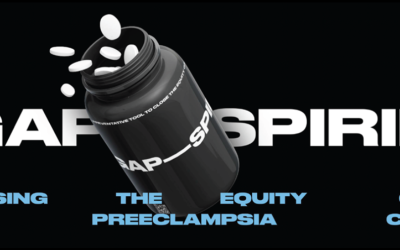
GAP—SPIRIN campaign gets low-dose aspirin to those most at risk to help close the maternal health gap in preeclampsia ________ NEW YORK, January 23, 2025/PRNewswire/ – In recognition of...
1732072344.png)
While the Preeclampsia Foundation has been championing patient advocacy and representation for all families affected by hypertension in pregnancy throughout our 25 year history, we recognized the uniq...

